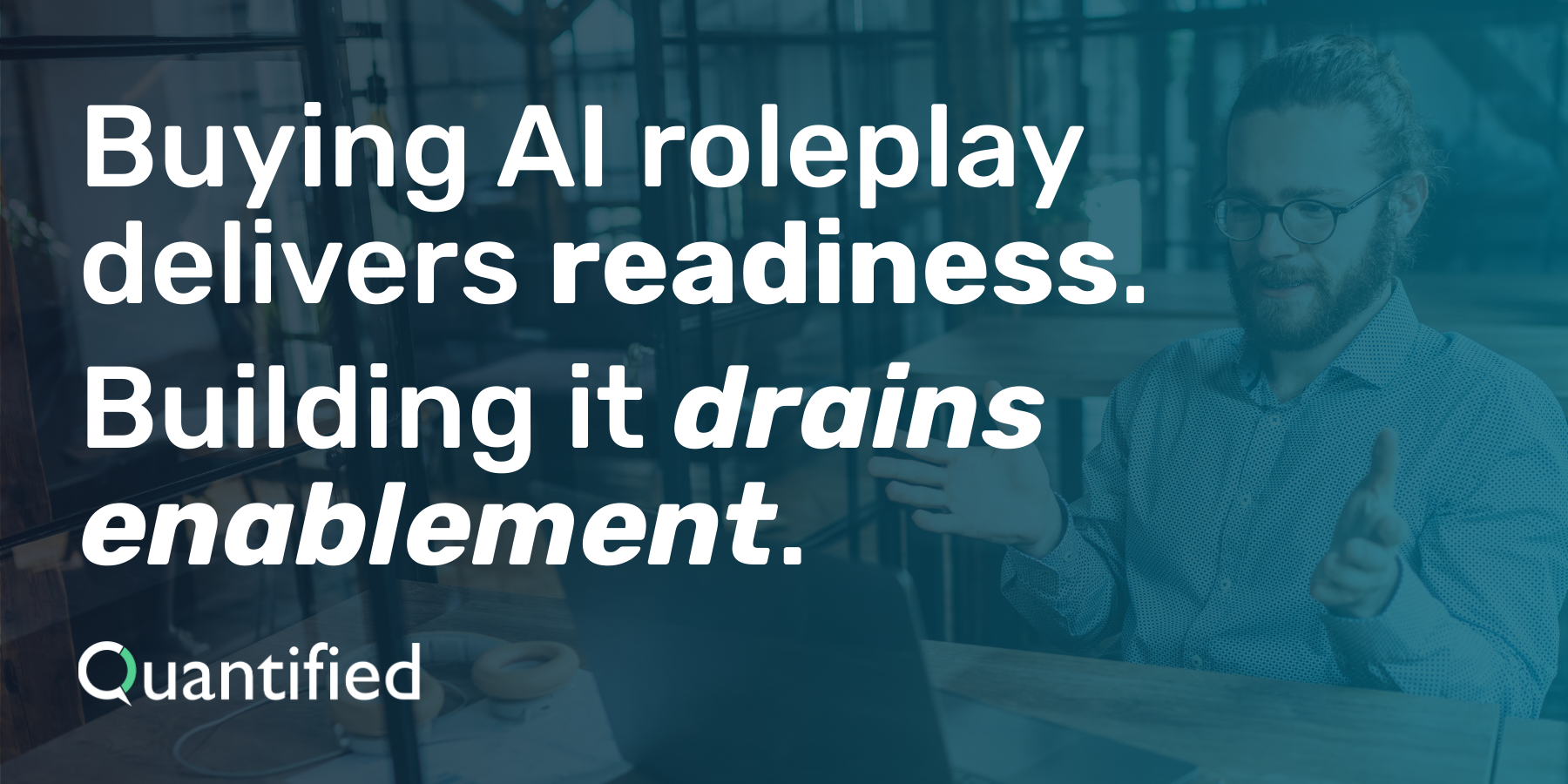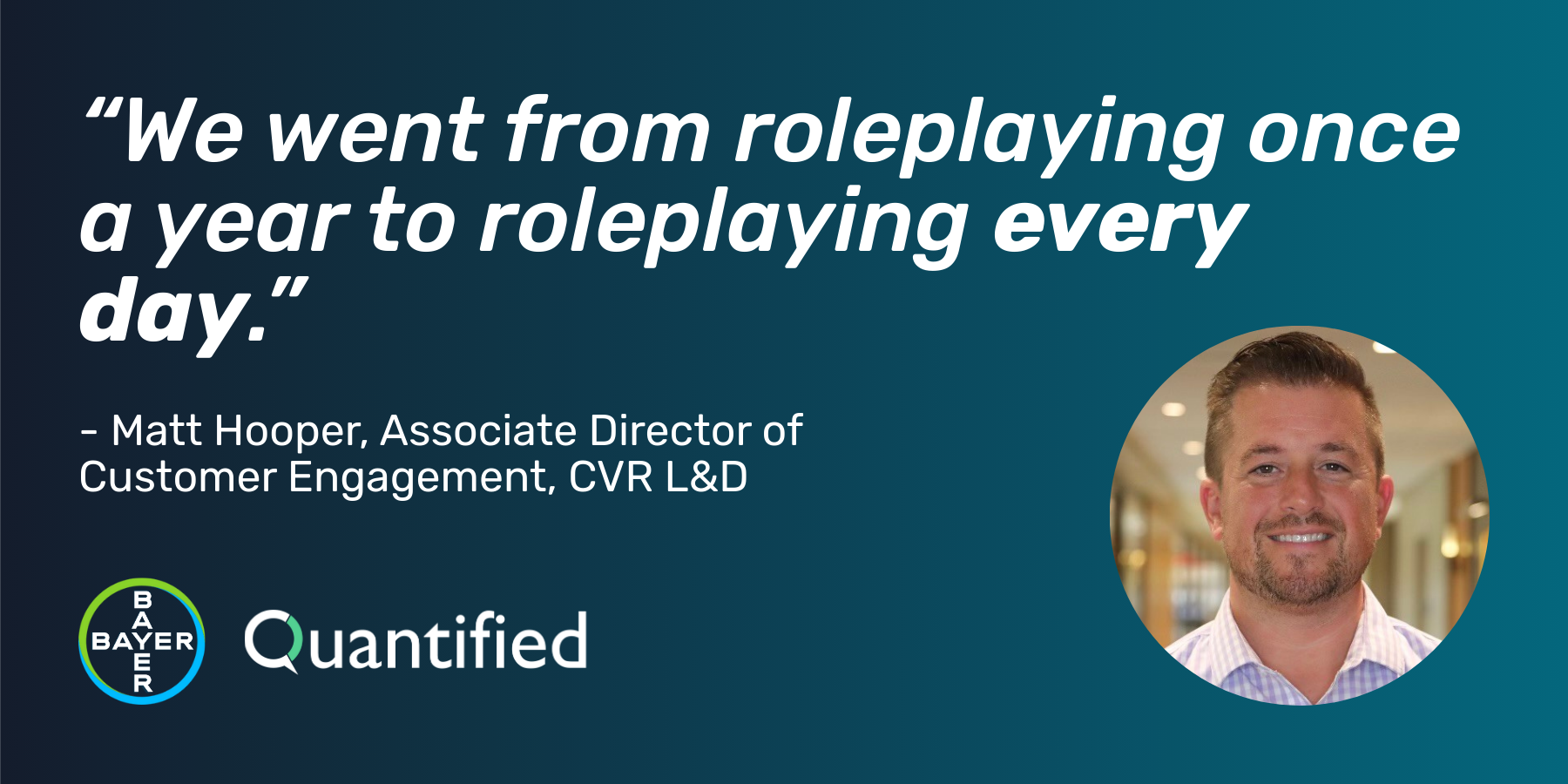How Pharma Teams Use AI Roleplay to Drive NSM Message Pull-Through


The NSM Is Over—Now What?
Your National Sales Meeting is over. The energy was high, the new messages landed—and then real life happened. Within weeks, many teams drift back to old habits, managers can’t coach every call, and leaders lose visibility into pull-through. The problem isn’t the meeting. It’s the maintenance.
Pharma orgs using AI roleplay keep the message alive with on-demand practice, objective feedback, and built-in compliance—at scale. Example: Bayer certified 500+ reps with a 97% mastery rate and saved thousands of trainer hours. Novartis reported ~20× more practice sessions, 578+ practice hours, and ~90% participation as AI roleplay became part of onboarding, NSMs, and ongoing coaching.
Why Message Pull-Through Fails
Even the best-planned NSMs lose momentum once the event ends and the field reenters reality:
- Competing priorities crowd out deliberate practice.
- Manager bandwidth limits observation and individualized coaching.
- Certification ≠ sustained fluency—it marks readiness, not reinforcement.
Traditional tactics (webinars, ride-alongs, post-event check-ins) help, but they don’t scale to hundreds of reps across regions and therapeutic areas. You need a modern, data-driven way to make practice continuous and measurable.
AI Roleplay: From NSM Energy to Everyday Execution
AI roleplay gives reps a realistic place to practice HCP conversations on demand, using lifelike personas tuned to your brand, indications, objections, and approved language. Simulations mirror real dynamics—tough questions, tone shifts, even non-verbal cues—so reps refine how they deliver key messages under pressure.
Every session returns structured, objective feedback on accuracy, confidence, and compliance, creating a tight loop: practice → measure → coach → reinforce.
Five Ways Teams Make It Stick
- Continuous Practice: Reps rehearse messages anytime, whether pre-call, between visits, or weekly as part of coaching. Short, frequent reps = sticky knowledge and fluent delivery.
- Realistic Scenarios: Adaptive personas push back with nuanced objections and scenario shifts, so practice feels authentic—not scripted—and translates to the field.
- Data-Driven Insights: See who uses key language correctly, where hesitation appears, and how confidence trends, turning qualitative coaching into quantifiable progress.
- Manager Enablement: Front-line managers get the visibility they’ve been missing. Targeted dashboards pinpoint exactly where to coach, saving time and improving outcomes at scale.
- Built-In Compliance: With safeguards like ComplianceGuard AI, every interaction is evaluated against approved, on-label messaging. Reps get immediate corrections; leaders get an audit-ready trail.
Proof: What Leading Pharma Teams Are Seeing
Across the industry, leading pharma companies are rethinking what reinforcement looks like.
At Sanofi, training leaders used AI simulations to prepare for a critical product launch. Reps practiced with AI personas before and after the event, reinforcing key messages and staying fluent as they engaged HCPs in the field. The approach created a smooth bridge from certification to confident execution.
Bayer took a similar path. After training hundreds of reps on new messaging, managers continued to use AI simulations to track message consistency and identify where additional coaching was needed. What started as a certification tool became an ongoing practice platform that kept the field aligned and ready.
At Novartis, AI roleplay became a cornerstone of onboarding and ongoing development. Both new and experienced reps practiced regularly to stay sharp as messaging evolved, helping the team maintain consistency across markets and launches.
Common thread: practice did not end when the meeting did. It became a habit—keeping messages alive, skills sharp, and performance measurable.
The Science Behind Lasting Retention
The power of AI roleplay is grounded in behavioral science. Learning retention improves dramatically when practice is spaced, repeated, and applied in context.
This is known as the spacing effect, where repetition over time strengthens memory, and the retrieval effect, which shows that recalling information in realistic scenarios cements it in long-term memory.
AI roleplay naturally incorporates both. Reps revisit key messages in different scenarios, receive immediate feedback, and repeat until mastery becomes automatic. Over time, that repetition builds confidence, fluency, and consistency.
It is not just theory. Quantified data across pharma customers show that ongoing AI practice leads to measurable gains in message recall, confidence, and compliant delivery in the field.
What Success Looks Like in the Field
In a world where access to HCPs is limited and competition is fierce, consistent messaging is a differentiator.
Imagine a field team that delivers the same confident, compliant message across every territory. Managers coach with precision. Training leaders can show exactly how NSM content translates to field performance. Compliance officers have a digital trail that proves alignment.
That’s modern message pull-through: consistent, measurable, and built to last.
The Takeaway
The NSM should not be the end of your training. It should be the beginning.
AI roleplay bridges the gap between learning and doing. It gives reps a safe place to practice, managers the data to coach effectively, and organizations the confidence that their message is being delivered correctly, every time.
Your teams move from just hearing the message to living it.
Don’t let your NSM fade into the rear-view. See AI roleplay with your own messaging, objections, and compliance guardrails.









